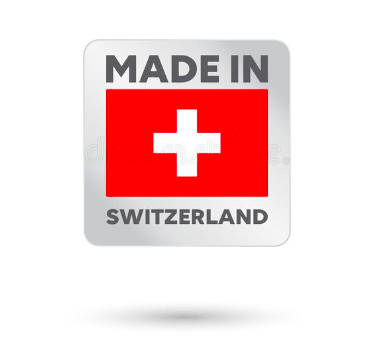jeu, Sep 29th 2022
UltraSwiss recently sat down with Yves Beljean, the owner and CEO of Swiss Made Direct, the first and foremost online store for all Swiss made products. Swiss Made Direct sells everything from chocolate and cheese to cosmetics and skis – and ships the items around the world.
In 2014, Beljean left an office job to take over Swiss Made – the first iteration of today’s Swiss Made Direct – and has dedicated the last eight years of his life working with local companies and growing SMD organically. Beljean said he loves that his company can introduce locally made Swiss products to people around the world and that Swiss expats abroad can have a connection to home. Moreover, SMD is devoted to supporting small and mid-sized Swiss companies grow their businesses beyond Swiss borders.
In our Q&A with Beljean, he discusses some of the joys and hurdles of running SMD, as well as his ongoing legal issues with Swiss Post, the national postal service for Switzerland.

Yves Beljean
Q: Did you receive a good reception from the customers after acquiring the company and the relaunch?
A: The customers overall think the website is great and are happy that a company like Swiss Made Direct exists.
For many local businesses, they were concerned that selling their products outside of Switzerland would be too complicated. Export marketing and sales takes so much administration; it’s complex and the expenses can seem too high. Many companies just felt more comfortable working inside Switzerland. It’s completely understandable.
We are the official representative of many Swiss labels and are the only platform that really shows the different levels of “Swiss Made” products. For example, the “Swiss Label” is for producers who are members of the official Swiss Label, meaning those products are entirely manufactured according to the Swissness Rules. We created the “Almost Swiss Made” label to show products that are designed in Switzerland or the office is in Switzerland, but other aspects are produced outside of Switzerland.
Customers appreciate that. Because they have the guarantee what they are receiving is coming from Switzerland and not from somewhere else. That’s also the reason why we never set up a distribution center somewhere outside of Switzerland; because, customers want to know that what they ordered is really coming from Switzerland.
Q: Which products on your site are most popular?
A: The chocolate, of course. But we have new products every week. Every producer is unique and I’ve learned so much about what Switzerland has to offer. It’s exciting. This company is kind of like a mirror of the Swiss economy. You have one place where customers can go and see what is being produced in Switzerland and get it from us. And as I said before, if we don’t have something on our site, customers can just ask us and we will get it.

Q: What were some of the biggest hurdles in the first year of your business?
A: The biggest thing was when we took the over the shop platform and discovered it was a totally customized design. And there was only one programmer left who knew anything about it, so, we had to redesign it totally. It took us quite a few years and it’s now the fourth version. Now we are growing quite well, and we wish to grow much more so that we can give more to our customers and to Switzerland.
Q : What do you mean by saying you want to give more to Switzerland?
A: We want to help Swiss businesses, customers, everything – because it’s a circle. A product, a company and customers create that circle. You need to first find out where help is needed and then you can support. But also in these unique times, we want to support our customers as we appreciate them very much.
Q: What are the top four or five countries that Swiss Made Direct ships to? And where do you think further growth opportunities lie?
A: The number one place is the United States still. It has been like that for years. Then Canada, the U.K., but also countries like Saudi Arabia and the Emirates. Some Asian countries are big customers. But the first three mostly stay the same. We believe there will be good growth opportunities long-term in all regions, with some regions like Africa being of special interest. On the other hand, we do think that global growth will be quite challenging for the next year or two due to the current economic outlook.

The classic Swiss Army blanket is a popular item on Swiss Made Direct.
Q: How have the 2017 “Made in Switzerland” regulations affected your business?
A: Before 2017 you could find a lot more products on the internet that claimed to be “made in Switzerland” or they had a Swiss flag on it. You can still find things with a Swiss flag on it today, but now you can easily check to see if it is actually made in Switzerland or if the business administration is just done in Switzerland. So, I guess the likelihood of a foreign company profiting off of Swissness has been reduced with the new regulations. The government also created a new department within the Swiss Federal Institute of Intellectual Property. The new department has its own “Swiss Enforcement” bureau which we cooperate with, as well. The increase in enforcement is very positive for our business, as we exist only to promote genuine Swiss made products.
Q: Does Swiss Enforcement prosecute such cases even outside of Switzerland?
A: Yes, they do. Whenever a Swiss company sees a copy of their brand or their product – if they are members of Swiss Enforcement – they can contact this organization and ask them for support. And as I’m informed from the director of Swiss Enforcement, they are very successful. They are able to go through embassies, so you don’t have to hire a lawyer here or in another country. That’s for sure a huge improvement for the enforcement of this Swiss law.
Q: Have you seen any direct benefits for your business from this regulation?
A: Well, it certainly supports our credibility. But we have been trying to do everything right from the start. Our products are almost always totally Swiss made, or we tell you if a part of it comes from outside Switzerland – that’s why we created the category “Almost Swissmade.” We like to be transparent to the customers and educate them about the origin of our products.

Q: Are you seeing a lot of price compression due to rising wholesale prices and an increase in shipping costs?
A: The shipping cost, of course, is squeezing everyone. Because it’s increased by up to 15%. That’s why we keep trying to do our best to reduce the shipping costs, again. Retail prices in Switzerland haven’t increased that much yet, so we have been able to keep our prices stable for the last three or four years. Of course, if prices explode, then we would have to raise prices. But we would like to avoid that for as long as possible.
Swiss Made Direct supports Swiss who live abroad or visitors who have been to Switzerland and say, “I like this product or I want to have more of what I tried or saw during my holiday in Switzerland.” With our company, it is produced in Switzerland and sent from Switzerland. And we offer our customers the same shipping price as we get from the carriers. We do not mark up shipping.
Q: That leads us to Swiss Made Direct’s legal dispute with Swiss Post, the government postal service. What can you tell us about the case?
A: In 2018, Swiss Post came to us and said “Why don’t you ship products more with Swiss Post?” Because we started using other carriers and the volume of our shipping with Swiss Post had dropped down. But they charged much more than other carriers and we always try to get the best price for our customers.
Swiss Post said “Give us some numbers and we can make you an offer.” We made a contract with them and indeed they had better shipping rates under the contract. But at the end of 2019 they came to us and said “Your volume is not high enough, we’re canceling your contract.”
The problem for them is that our customers had realized it was easier and faster to ship with other carriers. I informed Swiss Post many times over the years that their shipping rates were too high and service too slow. I thought, who will use this service? But Swiss Post did not seem to care about any of that.
In 2019, an influencer came to use and said, “Oh, did you realize the Swiss Post is now doing the same business that you are doing?” We looked and the Swiss Post had indeed copied our platform and business, but with much better shipping prices than what they gave us or any other private company in Switzerland. An arm of the Swiss government, a taxpayer funded service provider, was competing with us and doing so on unfair terms.
At this point we had been clients of theirs for years, so they clearly and knowingly copied us. We shared our knowledge with them, and even lent our IT help to them to fix their own IT issues. We even gave them access to the backend of our website (without customer data) so that they could understand how our site works. They copied all of that.

The lawsuit against the Swiss Post has made local headlines for the past year.
Q: Are they still competing against you today?
A: No. We went to the arbitration board and filed a claim.
On Friday, September 24th 2021 at 3:30 in the afternoon, they sent notices to every supplier of theirs that the shop was no longer affordable. On Sunday the 26th, the first article about the lawsuit was published in local newspapers. There have been more articles since then.
The funny thing is they were just about to register their brand name so that it would be protected globally, but they canceled that. The Swiss Post says that happened accidentally. I don’t think so, but everyone can form their own opinion.
Q: What is the Swiss attitude towards startups in general?
A: Startups are not well-enough regarded, in my opinion.
I wish there was a much wider field of ideas and more support from government. There should be a more level playing field between startups that come out of universities and private ones. University startups get considerable taxpayer subsidies and intangible support, whereas private startups are left to their own devices. Either all startups should get taxpayer funded benefits of equal measure, or the taxpayer support for university-based startups should be eliminated. The current system rewards only those with academic connections at the expense of every taxpayer.
Founders of startups come from all walks of life and don’t always go the university track. People with an apprenticeship or a more practical background also have wonderful ideas that may have a huge impact on society.
Unfortunately, it is also true that the Swiss culture does not accept failure. If you have a mistake on your record, or if you made a bad decision and went bankrupt, it is not acceptable. Thomas Edison once said of his thousands of negative lightbulb experiments, “I have not failed. I’ve just found 10,000 ways that won’t work.” That mindset is not a Swiss one.
I have contact with people from outside of Switzerland, especially the United States, who say “How can I support you? Let’s do it together.” And in Switzerland, you find more asocial reactions such as, “He’s doing something better than what I have, or, I’m happy to see him going down.”
I mean, the best example is the Swiss Post. We asked them to cooperate and do something for the Swiss economy.Instead of that, they pirated our platform us and tried to kick us out of the business. That’s the average Swiss business mindset – of course there are exceptions.

Q: I’m surprised that Swiss businesses don’t form a union or a lobby that pushes back against the government, and tries to hold them accountable.
A: We do have some commercial chambers and unions. But, they do not work well most of the time because some lobbies are too big or things are too connected to politics. The mentality in Switzerland is: as long as people are in their comfort zone, nothing should be changed. People still believe that the government knows what they are doing, and are doing it the right and legal way. Most people are too scared they’ll lose their fortune or their reputation to challenge the system. Also, the courts and the lawyers here are so expensive, people hold back when fighting for their rights. They also know, that government employees have a lot of power.
Q: What else can you tell us about the Swiss Post situation?
A: The Swiss Post case cost us a lot of money. If we had not gone up against them, they would still be giving themselves better pricing over Swiss businesses, and even over the Swiss public (they are also our customers). They’d be paying too much – between 100 percent and 600 percent more than they should. I guess fear of exposure was the reason why they shut down their shop very quickly.
We are a small company. They did not take us seriously or think that we would go this far in fighting them, even after I wrote to the CEO of the Swiss Post requesting a meeting, or even after I had a conversation with someone on the Swiss Parliament and member of the responsible commission that deals with Swiss Post. I saw filing the lawsuit as kind of an obligation. If we didn’t go up against Swiss Post, who would? I thought in 2014 when I took over Swiss Made that e-commerce would be easy. That’s absolutely not true. I know this now today.
Q: Have you ever wanted to quit?
A: No.
Q: You’re passionate about it?
A: Yes. Because I know it’s a need for Swiss producers and global customers. Also, I think it’s especially important for Swiss companies to cooperate and work together and support each other. The Swiss nature is to be independent as much as possible and I think it’s time to change this culture.
In the end, it’s all about passion. We call Swiss Made Direct our baby. We want to raise our baby and want Swiss companies to join us in this pursuit.
Cet article peut être librement partagé et réimprimé, à condition qu'il renvoie clairement à l'article original.
